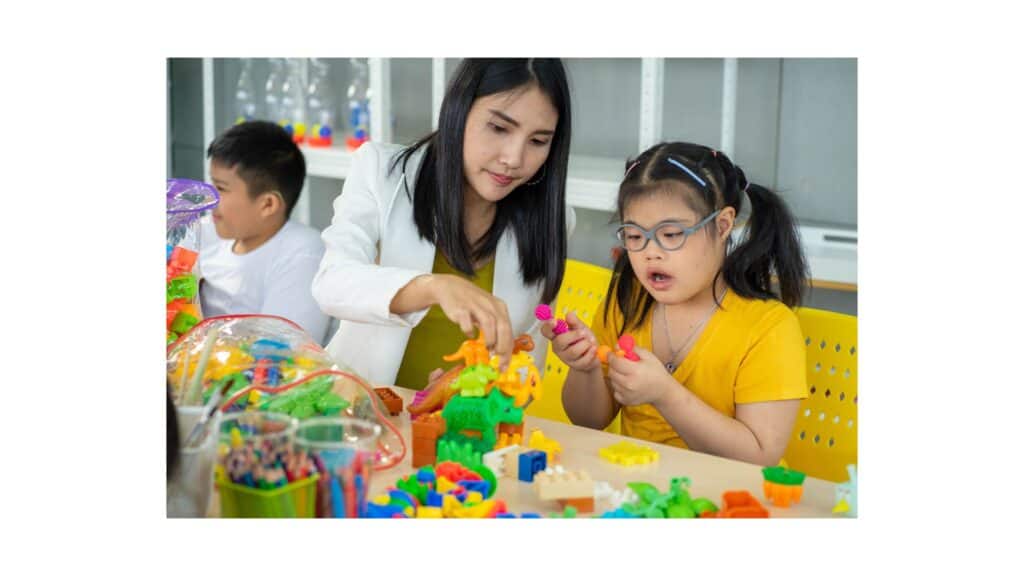In the realm of child development and behavior management, Applied Behavior Analysis (ABA) therapy has emerged as a powerful tool for promoting positive behaviors and reducing challenging ones. While traditionally administered in clinical settings, the principles of ABA can be seamlessly integrated into everyday routines at home, offering continuous support and reinforcement for children with developmental challenges or special needs. In this blog post, we’ll explore the practical ways parents and caregivers can incorporate ABA techniques into various daily activities, turning routine tasks into opportunities for learning, growth, and improved behavior. From mealtime and playtime to bedtime routines and beyond, ABA strategies can help foster independence, communication skills, and social interactions in children of all ages and abilities. Join us as we delve into the world of ABA therapy and discover how simple modifications in everyday activities can make a significant difference in a child’s development and well-being.
Building Communication Skills Through Play

In the world of childhood development, play is more than just fun—it’s a powerful tool for learning and growth. For children with developmental differences, such as autism spectrum disorder (ASD) or communication disorders, play-based interventions grounded in Applied Behavior Analysis (ABA) principles can be particularly beneficial. By harnessing the inherent joy and engagement of play, caregivers and therapists can create rich opportunities for building essential communication skills in a natural and enjoyable way.
Creating a Playful Learning Environment
Central to building communication skills through play is the creation of a supportive and stimulating environment that encourages exploration, interaction, and engagement. Caregivers and therapists can design play spaces that are rich in opportunities for communication, incorporating toys, activities, and materials that cater to the individual interests and abilities of the child.
Encouraging Language Development Through Play
Play-based interventions provide numerous opportunities for language development, from labeling objects and actions to engaging in imaginative play scenarios. Caregivers and therapists can capitalize on these moments to model language, expand vocabulary, and encourage expressive and receptive communication skills.
Fostering Social Interaction and Turn-Taking
Play inherently involves social interaction and turn-taking, essential skills for successful communication and socialization. Through cooperative play activities, children learn to initiate interactions, respond to others, take turns, and negotiate shared play scenarios, laying the foundation for meaningful social relationships.
Targeting Specific Communication Goals Through Play
Play allows for targeted practice of specific communication goals identified in the individual’s treatment plan. Whether it’s improving eye contact, using gestures, initiating conversation, or following directions, caregivers and therapists can tailor play activities to address the unique needs and challenges of each child.
Incorporating Assistive Technology and Visual Supports
For children with communication difficulties, assistive technology and visual supports can enhance their ability to participate in play and communicate effectively. From picture communication systems to speech-generating devices, these tools can be seamlessly integrated into play activities to support comprehension, expression, and social interaction.
Promoting Social Skills in Natural Settings
Social skills are crucial for navigating the complexities of human interaction, yet for individuals with developmental differences, mastering these skills can pose significant challenges. Fortunately, with the right support and guidance, social competence can be cultivated in various settings, including the comfort of one’s home. In this blog post, we’ll explore practical strategies for promoting social skills in natural settings, empowering individuals with developmental differences to engage meaningfully with others and build lasting connections.
Setting the Stage for Social Success
Creating an environment conducive to social interaction is the first step in promoting social skills at home. Arrange the space to encourage face-to-face communication and collaboration, with comfortable seating arrangements and clear visual cues to facilitate engagement.
Embracing Everyday Opportunities for Social Learning

Social skills don’t exist in a vacuum; they’re developed through real-life experiences. Encourage participation in everyday activities such as meal preparation, family outings, and game nights, providing ample opportunities for practicing turn-taking, sharing, and conversation.
Facilitating Peer Interaction Through Play
Play is a natural avenue for socialization, offering children with developmental differences a platform to engage with peers on their terms. Organize playdates with carefully selected peers who share similar interests and abilities, providing structured activities and gentle guidance as needed to foster positive social interactions.
Modeling Social Behaviors and Communication
As parents and caregivers, we serve as powerful role models for our children. Demonstrate effective communication skills, empathy, and respect in your interactions with others, offering verbal praise and reinforcement when your child demonstrates similar behaviors.
Encouraging Empathy and Perspective-Taking
Empathy is the cornerstone of meaningful social connections. Encourage your child to consider the thoughts and feelings of others, prompting discussions about different perspectives and encouraging acts of kindness and compassion.
Turning Daily Routines into Learning Opportunities
In the hustle and bustle of daily life, it’s easy to overlook the potential for learning that exists within our everyday routines. However, for individuals with developmental differences, these routines can serve as invaluable opportunities for skill development and growth. In this blog post, we’ll explore how to harness the power of daily routines to foster learning and independence in individuals with diverse needs.
- Morning Routines: A Foundation for the Day: Transform morning routines into structured learning experiences, incorporating tasks such as dressing, grooming, and breakfast preparation to promote independence and self-care skills.
- Mealtime: More Than Just Eating: Elevate mealtime into a sensory-rich learning experience, engaging individuals in meal preparation, table setting, and food exploration to enhance fine motor skills, social interaction, and nutritional awareness.
- Chores: Building Responsibility and Life Skills: Infuse household chores with purpose and meaning, assigning age-appropriate tasks and providing step-by-step guidance to develop executive functioning skills, work ethic, and a sense of contribution to the family unit.
- Transitions: Navigating Change with Ease: Use transitions between activities as teachable moments, employing visual schedules, timers, and verbal cues to help individuals anticipate changes, manage transitions, and develop flexibility and self-regulation skills.
Conclusion
Integrating Applied Behavior Analysis (ABA) therapy techniques into everyday activities at home can significantly enhance the learning and development of individuals with autism spectrum disorder and other developmental disabilities. By incorporating these evidence-based strategies into daily routines, families can create a supportive environment that fosters skill acquisition and promotes independence. Whether it’s mealtime, playtime, or bedtime, there are countless opportunities to implement ABA principles and support the progress of your loved one.
For more information on how to incorporate ABA therapy into your home routine, feel free to reach out to Positive Solutions Behavior Group LLC in Florence, Kentucky. Our team of experienced professionals is dedicated to providing comprehensive ABA services tailored to the unique needs of each individual and family. Contact us today at 859-282-0400 to learn more about how we can support your journey towards positive behavior change and meaningful outcomes.






